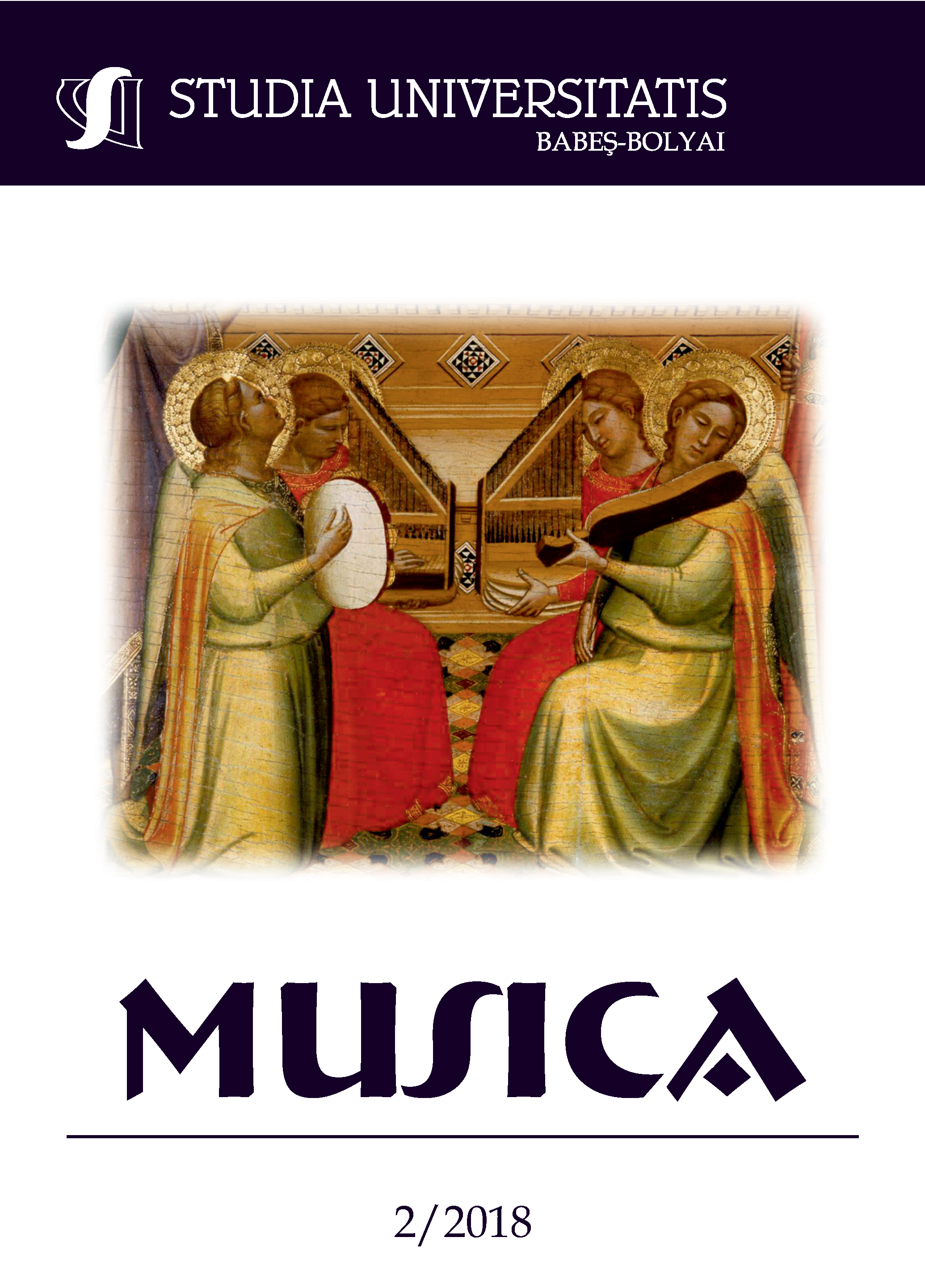OPERETTA AS A GENRE FROM ITS BEGINNINGS TO ITS FAMOUS HUNGARIAN REPRESENTATIVES
DOI:
https://doi.org/10.24193/subbmusica.2018.2.10Keywords:
operetta, prima donna, grande dame, musical, themes.Abstract
This work comprises three uneven parts. In the first part we have attempted to offer an abbreviated history of the operetta genre, from the beginning of the 17th century to its Hungarian composers at the end of the 19th and the beginning of the 20th centuries. Instead of an exhaustive historical presentation, we focused on pursuing a line of argumentation that would explain the emergence of the Hungarian composers from Budapest and Vienna, whose operettas successfully entertain audiences until this day. In the second part, we reviewed the specific topics approached by the Hungarian operetta composers, exemplifying these by briefly presenting the contents of the 14 operettas that we will analyze during our doctoral research. In the third part we compared the genres of opera and operetta, in terms of their elements. We considered this to be necessary in order to be able to demonstrate the specific features of the operetta genre and also emphasize the fact that they are very elaborate works created by talented and well-trained composers, and their staging required just as much talent, work and dedication throughout history, as their great operatic counterparts.References
***, Brockhaus Riemann Musiklexikon, Zeneműkiadó, Budapest, 1983-1985.
***, Dicționar de termeni muzicali (Dictionary of Musical Terms), Editura Stiintifica si Enciclopedica, Bucuresti, 1984, ed. a II-a: Editura Enciclopedica, Bucuresti, 2008.
***, Dictionnaire de la musique (Marc Vignal), Larousse, Paris, 1993.
***, Larousse Dicționar de mari muzicieni (Larousse Dictionary of Great Musicians), Univers Enciclopedic, Bucuresti, 2000.
***, The New Grove Dictionary of Music & Musicians, Macmillian Publishers Limited, London, 2001.
Gál, György Sándor, Operettek könyve (The Book of Operettas), Zeneműkiadó, Budapesta, 1976.
Gänzl, Kurt, The Encyclopedia of the Musical Theatre, Schirmer Books, 1994.
Moisescu, Titus – Păun Miltiade, Opereta – ghid (The Operetta – A Guide), Editura Muzicală a Uniunii Compozitorilor din RSR, București, 1969.
Németh, Amadé, A Magyar operett története (The History of Hungarian Operettas), Anno Kiadó, 2002.
Winkler, Gábor, Operett – Szubjektív kalauz egy varázslatos világunkban (The Operetta – A Subjective Guide into a Magical World), Tudomány Kiadó, Budapesta, 2013.
Web Resources:
Dimofte, Georgiana, Opera și opereta, asemănări și deosebiri (Opera and Operetta – Similarities and Differences), https://www.scribd.com/doc/285927143/Opereta-Si-Opereta-asemanari-si deosebiri, 2015
https://onlinemerker.com/giessen-viktoria-und-ihr-husar-von-paul-abraham-premiere
Downloads
Published
How to Cite
Issue
Section
License
Copyright (c) 2018 Studia Universitatis Babeș-Bolyai Musica

This work is licensed under a Creative Commons Attribution-NonCommercial-NoDerivatives 4.0 International License.



